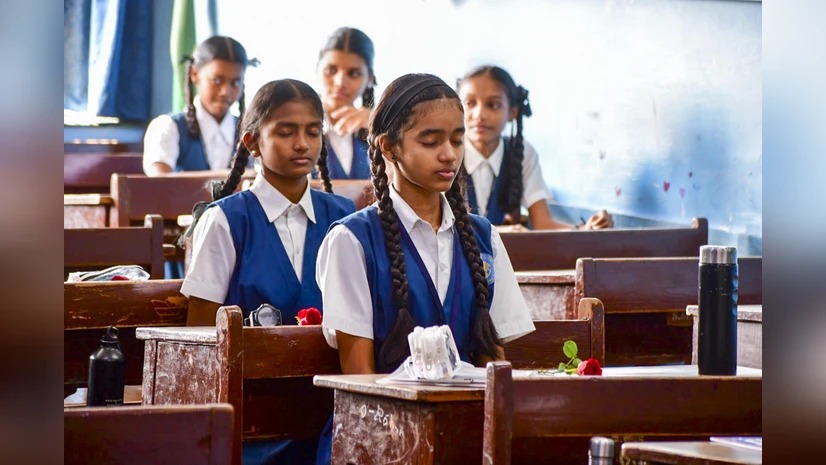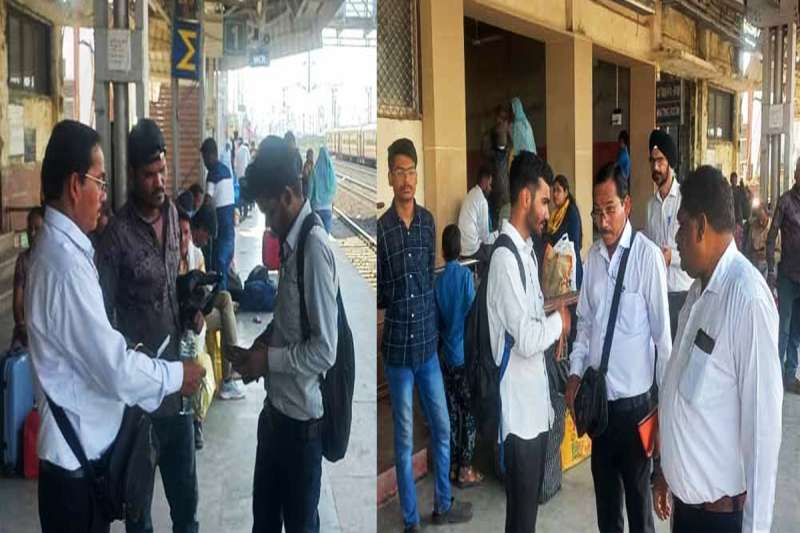@JUDGMENTTAG-ORDER
Reva Khetrapal, J.@mdashThis appeal is directed against the judgment and award dated 29.09.2010 passed by the Motor Accident Claims Tribunal awarding a sum of Rs. 12,93,784/- against the claimed amount of Rs. 50,00,000/- towards compensation to the Appellants for the death of Pyare Lal, son of the Appellants No. 1 and 2 in a road accident.
2. With the consent of the parties, the matter is taken up for final hearing at this stage.
3. Although a number of grounds of appeal are set forth in the Memorandum of Appeal, the same were not pressed at the time of hearing of the appeal and the short submission of Mr. Yogesh Swaroop, the learned Counsel for the Appellants is that the Claims Tribunal, while calculating the compensation payable to the Appellants, grossly erred in deducting 50% of the total income towards the personal expenses of the deceased. He submits that the award in the present case was made by the Claims Tribunal in a very mechanical manner. He further submits that having regard to the fact that the Appellants Nos. 3 to 5 are the minor sisters and brother of the deceased and the Appellant No. 1 and 2 are parents of the deceased, who were totally dependent upon the deceased, the deduction of 50; of the total income of the deceased towards his personal expenses was unwarranted and unjustified.
4. Learned Counsel for the Appellant further contends that the Tribunal after referring to the testimony of PW-1, Sh. Bhaiya Lal, the father of the deceased, wrongly arrived at the conclusion that there was no evidence to show that the father of the deceased was not earning and was completely dependent upon the deceased for his livelihood and that there was also no evidence that the sisters and brother of the deceased were completely dependent upon the deceased. He pointed out that a perusal of the record shows that the Claims Tribunal, after adjudging the average monthly income of the deceased to be in the sum of Rs. 19,224/- inclusive of 50% towards future earning, deducted one-half of the earnings of the deceased towards the personal expenses of the deceased. This, he contended, was not justified for the reason that the deceased was survived not only by his parents, but by his two minor sisters and his brother, who was also a minor. The father of the deceased, PW-1, Bhaiya Lal testified that he was dependent upon the deceased and categorically stated that he was illiterate and not gainfully employed, and that he did not own any agricultural land or any immovable property except the house that they were living in. No evidence to the contrary was brought on record by the Insurance Company. In the circumstances, not more than one-third of the earnings of the deceased should have been deducted by the Tribunal towards the personal expenses of the deceased.
5. Indisputably, the deceased was a bachelor and as a general rule, deduction of one-half towards his personal expenses would be in consonance with the law laid down by the Supreme Court in the case of
Thus even if the deceased is survived by parents and siblings, only the mother would be considered to be a dependant, and 50% would be treated as the personal and living expenses of the bachelor and 50% as the contribution to the family. However, where the family of the bachelor is large and dependent on the income of the deceased, as in a case where he has a widowed mother and large number of younger non-earning sisters or brothers, his personal and living expenses may be restricted to one-third and contribution to the family will be taken as two-third.
6. In the case of
7. What would be the percentage of deduction for personal expenditure cannot be governed by any rigid rule or formula of universal application. It would depend upon circumstances of each case. The deceased undisputedly was a bachelor. Stand of the insurer is that after marriage, the contribution to the parents would have been lesser and, therefore, taking an overall view the Tribunal and the High Court were justified in fixing the deduction.
7. In
It is by now well settled that the compensation should be the pecuniary loss to the dependants by the death of a person concerned. While calculating the compensation, annual dependency of the dependants should be determined in terms of the annual loss, according to them, due to the abrupt termination of life. To determine the quantum of compensation, the earnings of the deceased at the time of the accident and the amount, which the deceased was spending for the dependants, are the basic determinative factors. The resultant figure should then be multiplied by a `multiplier''. The multiplier is applied not for the entire span of life of a person, but it is applied taking into consideration the imponderables in life, immediate availability of the amount to the dependants, the expectancy of the period of dependency of the claimants and so many other factors. Contribution towards the expenses of the family, naturally is in proportion to one''s earning capacity. In the present case, the earning of the deceased and consequently the amount which he was spending over the members of his family, i.e. dependency is to be worked out on the basis of the earnings of the deceased at the time of the accident. The mere assertion of the claimants that the deceased would have earned more than Rs. 8,000/- to Rs. 10,000/- per month in the span of his lifetime cannot be accepted as legitimate income unless all the relevant facts are proved by leading cogent and reliable evidence before MACT. The claimants have to prove that the deceased was in a trade where he would have earned more from time to time or that he had special merits or qualifications or opportunities which would have led to an improvement in his income. There is no evidence produced on record by the claimants regarding future prospects of increase of income in the course of employment or business or profession, as the case may be. It is stated that the deceased was about 24 years at the time of the accident. The MACT has accepted Rs. 4,000/- per month, as the earning of the deceased and after deducting Rs. 400/- per month for his pocket expenses, the remaining sum of Rs. 3600/- has been divided into three equal shares, out of which two shares, i.e. Rs. 2400/- per month or Rs. 28,800/- (wrongly mentioned as Rs. 28,000/- in the award), were assessed as loss to both the claimants, who were the parents of the deceased. The ages of the claimants are stated to be between 45 and 50 years and accordingly multiplier of 12 was applied. Thus, a sum of Rs. 28,800/- X 12 = Rs. 3,45,600/- was awarded as compensation.
8. In
4. After hearing learned Counsel for the parties, we are of the option that the view taken by the High Court and Tribunal is not correct. The incumbent was a bachelor and he could not have spent more than one-third of his total income for personal use and rest of the amount earned by him would certainly go to the family kitty. Therefore, determining the loss of dependency by 50% was not correct. Therefore, we assess that he must be spending one-third towards personal use and contributing two-third of his income to his family....
9. In
8. Whereas in determining an application for grant of compensation u/s 166 of the Act, the Tribunal may be entitled to find out actual loss of damages suffered by the claimants, the formula having not envisaged such a contingency, we are of the opinion that ordinarily one-third should be deducted from the income of the deceased and not the half thereof.
10. In the case of
11. In the present case, from the evidence on record it is evident that the family of the deceased was dependent upon the earnings of the deceased, who was working as a Chowkidar and was employed in the Karkardooma Courts on a permanent basis, earning a sum of Rs. 12,816/- p.m. He left behind him, apart from his mother, three minor siblings and an illiterate father, who has stated on oath that he was not gainfully employed. These were special features of the case, which should have been taken into account by the Claims Tribunal.
12. Keeping in view the aforesaid, it is deemed just and proper to re-calculate the compensation payable to the Appellant, taking his income to be in the sum of Rs. 19,224/- as assessed by the claims Tribunal and deducting there from one-third of his income towards his personal expenses. Thus calculated, the loss of dependency would be Rs. 19,224 x 12 x 2/3 x 11, that is, Rs. 16,91,712/- in all.
13. Adding to the aforesaid amount, a sum of Rs. 25,000/- awarded by the Tribunal towards non-pecuniary damages, including loss of estate, loss of love and affection and funeral expenses of the deceased, the compensation payable to the Appellants works out to Rs. 17,16,712/-.
14. The award is enhanced to the aforesaid extent. The rest of the award is upheld.
15. The Insurance Company is directed to deposit the enhanced amount of compensation along with up-to-date interest thereon at the rate of 7.5% per annum with the Registrar General of this Court within 30 days from today. The enhanced amount along with the interest thereon shall enure to the benefit of the Appellants No. 1 and 2, the parents of the deceased.
16. The appeal stands disposed of in the above terms.

